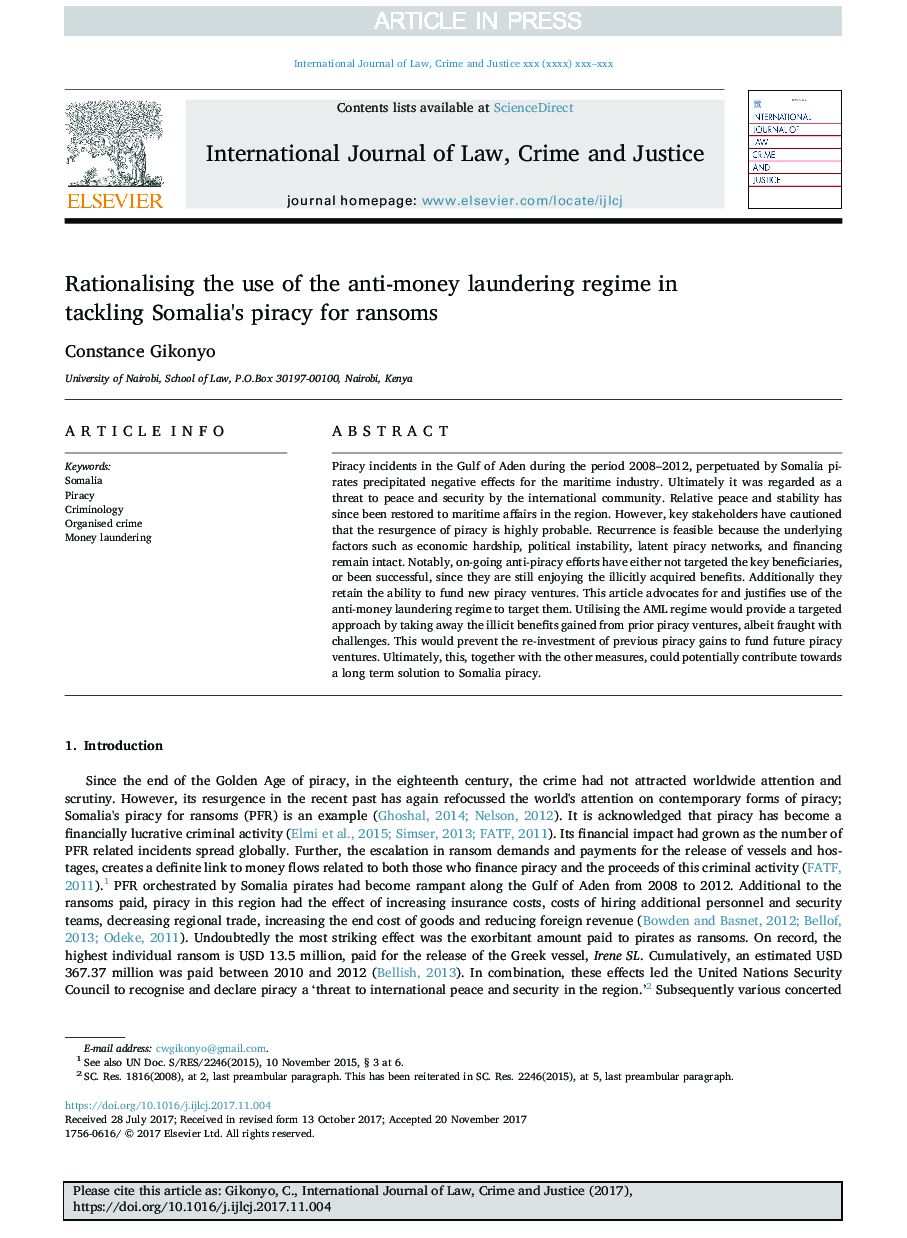| Article ID | Journal | Published Year | Pages | File Type |
|---|---|---|---|---|
| 7532055 | International Journal of Law, Crime and Justice | 2018 | 10 Pages |
Abstract
Piracy incidents in the Gulf of Aden during the period 2008-2012, perpetuated by Somalia pirates precipitated negative effects for the maritime industry. Ultimately it was regarded as a threat to peace and security by the international community. Relative peace and stability has since been restored to maritime affairs in the region. However, key stakeholders have cautioned that the resurgence of piracy is highly probable. Recurrence is feasible because the underlying factors such as economic hardship, political instability, latent piracy networks, and financing remain intact. Notably, on-going anti-piracy efforts have either not targeted the key beneficiaries, or been successful, since they are still enjoying the illicitly acquired benefits. Additionally they retain the ability to fund new piracy ventures. This article advocates for and justifies use of the anti-money laundering regime to target them. Utilising the AML regime would provide a targeted approach by taking away the illicit benefits gained from prior piracy ventures, albeit fraught with challenges. This would prevent the re-investment of previous piracy gains to fund future piracy ventures. Ultimately, this, together with the other measures, could potentially contribute towards a long term solution to Somalia piracy.
Related Topics
Social Sciences and Humanities
Social Sciences
Law
Authors
Constance Gikonyo,
